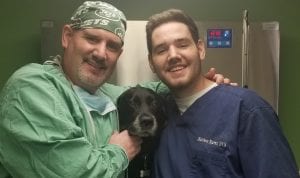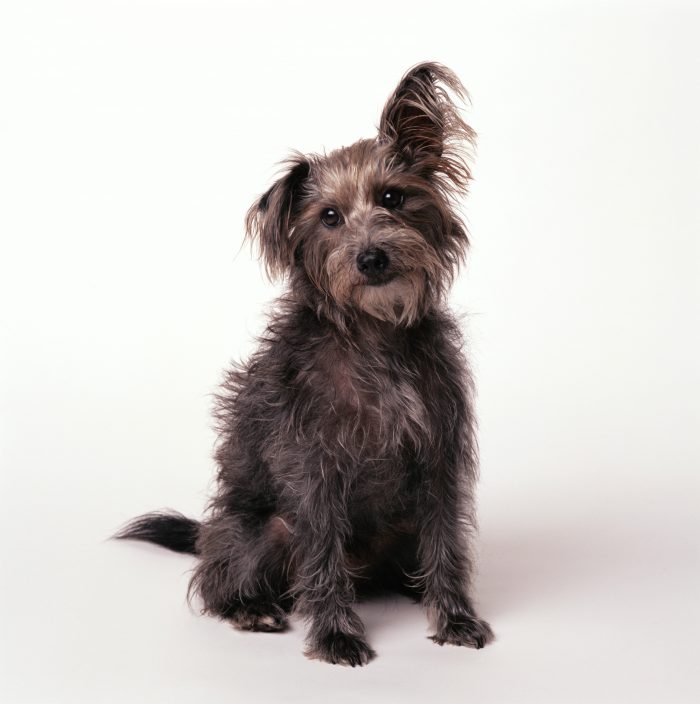Ask the Vet: Best medications for noise phobias
By Matthew Kearns, DVM

I commonly get this question around this time of year — “What can I give my pet (usually my dog) for all the fireworks before, during and after July 4th?”
Keep in mind that the fear of loud noises is a natural, instinctive behavior in dogs and cats telling them to seek shelter temporarily, alerting them to potential predators in the area, etc. However, I agree that when a pet is over sensitive to this noise stimulus to the point where they cower, shake, pace, urinate/defecate in the house, destroy furniture, or even try to climb on your lap (not too good if you own a Great Dane), it becomes a big problem.
Supplements: Alpha-casozepine, L-theanine (green tea extract), aromatherapy (lavender, chamomile), CBD are the safest but also have the widest range of efficacy. Owner feedback ranges from “just what the doctor ordered” to “I wasted my money.” My advice is it’s great to try these but have a backup plan.
Over The Counter Medications: The only over the counter medication that has been evaluated for sedation is diphenhydramine (Benadryl®). Diphenhydramine can cause drowsiness but I have found that is more effective for dogs that suffer from motion sickness during travel than sedation. My advice is the same. Have a backup plan.
Anti-depressants and SSRIs: These medications can be quite effective the mainstay of anti-depressants in veterinary medicine is a tricyclic anti-depressant (TCA) called clomipramine (Clomicalm®). The mainstay of selected serotonin reuptake inhibitors (SSRI) is fluoxetine (Prozac®). The problem is these medications can take a minimum of three weeks and sometimes up to 8 weeks to get to steady therapeutic levels. That means starting before Memorial Day and most pet owners (myself included) do not think that far ahead.
Benzodiazepines: This medication has been studied extensively for all sorts of anxiety and phobias in dogs. I have been less than impressed with the results with the use of benzodiazepines alone. Benzodiazepines are designed to be used in conjunction with a TCA or SSRI where the TCA/SSRI is a maintenance medication and the benzodiazepine is situational.
Phenothiazines: Phenothiazines are tranquilizers and the most widely used phenothiazine tranquilizer in veterinary medicine is acepromazine. Acepromazine is wonderful if one is looking to keep them still (and not destroy the house) but it does not address phobias or anxiety. I do prescribe it routinely around the 4th of July because it works so well in a “real time” basis but I do not recommend as a long-term medication.
Dexmedetomidine: This medication is the newest kid on the block. Initially used for sedation prior to procedures dexmedetomidine (Sileo®) is now used treat anxiety on a short-term basis similar to acepromazine.
There are choices for sedating our dogs for noise phobias this July 4th. Please check with your veterinarian to determine which is both effective and safe for your dog. Have a happy and safe holiday.
Dr. Kearns practices veterinary medicine from his Port Jefferson office and is pictured with his son Matthew and his dog Jasmine.







